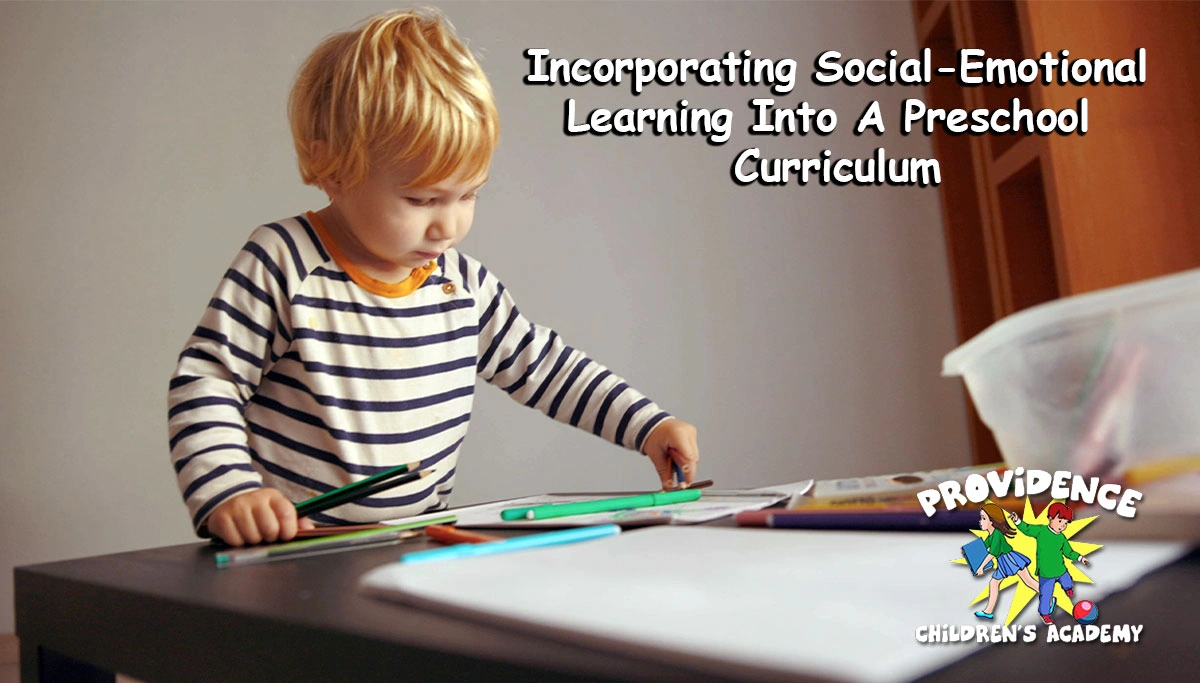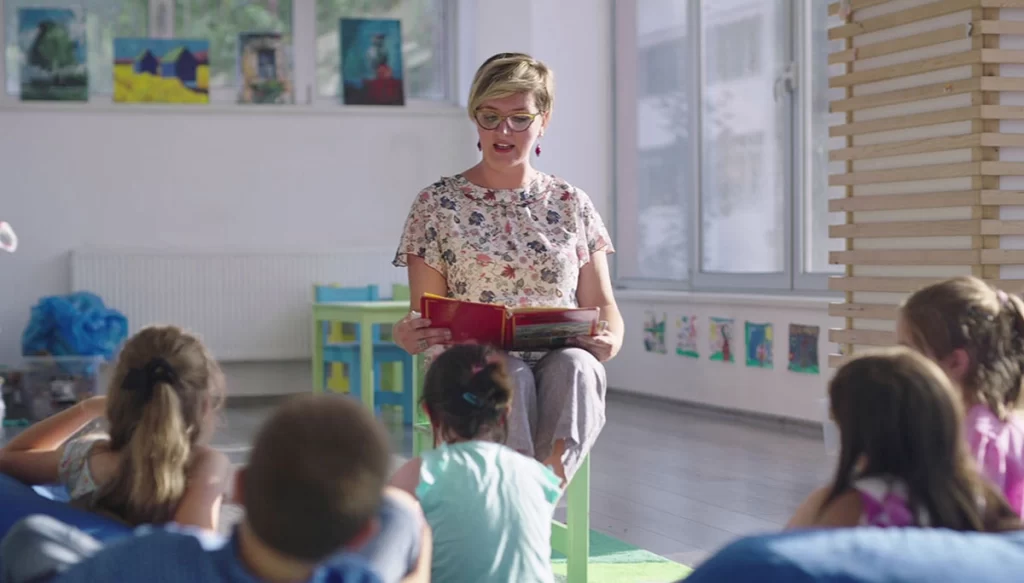
As time advances, methodologies in the classroom change to accommodate the needs of children in an ever-evolving world. You may have heard of a preschool curriculum called Social Emotional Learning (SEL), or perhaps used its principles at home with your child without knowing it. It’s a very handy concept to understand any time you encounter resistance when learning a new subject or trying out a new skill. When young children are frustrated or tempted to give up on something that’s hard, SEL is a valuable tool for teachers and parents to have in their arsenal.
SEL aims to help young students understand and regulate their emotions: the good ones and the not-so-good. In time, they learn to become more self-aware, more empathetic towards others, and get along with peers of different abilities and backgrounds. These are skills that are useful in the classroom as well as in life.
Read on to learn more about this preschool curriculum and how it can help prepare your child to succeed in their educational career, at home, and beyond.
At its core, Social Emotional Learning is a series of techniques to help all people – not just preschoolers – better understand their emotions and use them productively. While this is a useful skill for people of all ages, it’s especially critical for children who tend to feel things more intensely and lack the coping skills to express them appropriately.
Learned behaviors in response to these emotions will ultimately help students make more responsible decisions, create a framework for achieving goals, and build healthy relationships with both peers and the adults in their lives.

The following concepts of SEL can help students succeed anywhere, starting the classroom:
Advancing In Self-Awareness
“Self-awareness” involves recognizing emotions and the way they influence thoughts, behaviors, and decisions. Helping children grow in awareness will help them assess where their strengths and weaknesses lie. Disappointments and challenges are inevitable in life, after all. The sooner that children can recognize where they struggle, the better equipped and more resilient they will be.
Developing Self-Management
Everyone deals with anger or sadness every now and then. Self-management involves taking ownership of unpleasant thoughts in a variety of situations and setting healthy, realistic goals.
While self-awareness focuses on the individual, social awareness centers on others: particularly those of a different background or belief system. Social awareness helps young people develop empathy and understanding in spite of these differences in order to work together in the classroom and the community.
Building Relationship Skills
Using the social awareness skills above, children can maintain positive relationships with diverse people by building on communication skills, learning to resolve conflicts, and knowing when they should ask for help from a trusted adult.
Learning To Make Wise Decisions
Weighing emotions against logic, students can use this concept of SEL to make ethical, responsible decisions in a variety of circumstances.
How Educators Use SEL In A Preschool Curriculum

Social emotional learning is a concept that is flexible enough to weave into just about every subject that’s expected to be taught in a classroom. From reading to math to science, educators can help make these subjects more relatable and personal to students, especially if some subjects are more difficult to grasp than others. Perhaps teachers will have students write down their thoughts about a subject: what they love, what they don’t love, what aspects they’re struggling to understand.
Students can “buddy up” with other classmates who perhaps learn differently to better understand a difficult subject. Still other teachers may assign group projects so students learn cooperation and leadership skills in addition to the academic lesson.
There’s no official way to incorporate SEL concepts in the classroom, and different teachers may focus on different aspects or activities. Checking in with students regularly is a great way to assess how they are feeling or what they still struggle with. Young students can be given ideas on how to handle difficulties that come up, with the classroom being a safe place to process difficult emotions.
The Benefits Of SEL For Children

Social emotional learning has been shown to help children boost their grades and classroom attendance. When students are better able to express themselves, especially when they are having difficulty understanding a lesson, they are better able to overcome challenges.
The skills learned in SEL can also help children better handle peer pressures as they get older and face more complex problems. Learning these skills at a young age will better prepare them for challenges in the teenage and adult years, both academic and personal.
Find The Right Preschool Curriculum In Coconut Creek
Preschool is an important milestone for children, socially and academically. From the very basics of numbers and letters to socializing with peers, early learning sets the foundation for success throughout their academic career. Social-emotional learning is one of many tools that educators use in the classroom to help children grow into well-rounded individuals.
At Providence Children’s Academy, our staff is passionate about helping children grow academically, emotionally, and physically. From safe, hygienic playground equipment to a play-based learning style, parents in Tamarac love our facility. We also offer summer camps, after-school care, and more throughout the year.
To learn more about Providence Children’s Academy, call 954-570-6914 to speak with a member of our staff. We can’t wait to see your child enrolled this fall!
